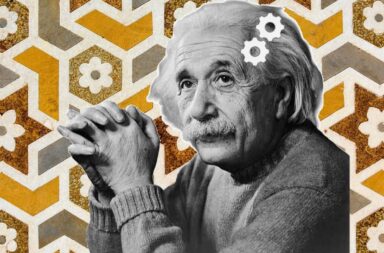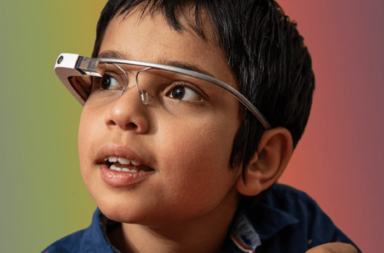In 1988’s Rain Man, the autistic Raymond Babbitt is referred to as everything from ‘crazy’ to a ‘retard’. In The Big Bang Theory, the character of Sheldon Cooper is called ‘aggravating’ and a ‘skinny weirdo’. However, he is also described as ‘loyal’, ‘trustworthy’ and even ‘fun’. In a way, this is indeed progress but, with 19 years between these two characters, is this the kind of progress the autism community deserves?
In an effort to understand how far autistic portrayals have evolved since our first prominent outing in 1988, today, I wanted to pit the two icons of autism fiction together and ask the question ‘How far have autism depictions really come?’
Round 1: Social & Communication Challenges
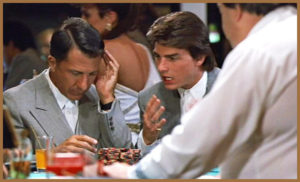
When we are introduced to Rain Man’s lead character, ‘Raymond Babbitt’, he is isolated, apathetic and entirely oblivious to the world around him. Raymond has little to no connection outside of the people that he relies on and even this small handful of people make quotes such as: ‘If I left town tomorrow and didn’t say good-bye, he’d never notice’.
Back in 1988, this was not an uncommon attitude to have when discussing autism, as the social & communicational challenges that our community faces (not to mention the lack of awareness that we even existed) made many believe that, not only did autistic people have no involvement with the wider public, but our detached status made it seem like this was something we were happy with.
This is something which has since been rectified in 2007’s The Big Bang Theory as, in direct contrast to Raymond Babbitt, the idea that Sheldon is isolated and unwilling to share his thoughts is something which his friends can only dream of.
Sheldon often comes across as patronising, egocentric and all-around unpleasant but, thanks to the opportunities long-form storytelling has, Sheldon is given the depth that Raymond never could.
This can be seen in episodes like ‘The 43 Peculiarity‘ when we are momentarily allowed into his world to realise that, yes, he is loud and obnoxious but, in many ways, he is overcompensating. As well as episodes like ‘The Cooper Extraction‘ when we see that he has changed his screensaver to the girlfriend he appears to be quite cold with – demonstrating how autistic people aren’t incapable of social communication, we are just challenged by it.
Round 2: Behaviours & Interests
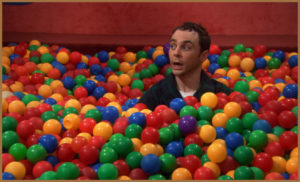
*Knock, knock, knock* ‘Penny’, *knock, knock, knock* ‘Penny’ *knock, knock* *knock*… if you’re autistic then, according to The Big Bang Theory, it should currently be driving you up the wall that I never finished that quote with a final ‘knock, knock, knock Penny’. However, while this is certainly an extreme depiction of autism (that realistically has more in common with OCD), it is also not far from the truth.
Like many autists, Sheldon surrounds himself with rituals and routines that help him make sense of the world. It’s an interesting juxtaposition, considering how intelligent he is but, it demonstrates that some aspects of an autistic mind defy logic – making us fall back to the simple concept of ‘if it feels good, do it’.
Similarly, while Raymond is shown as locked into his repetitive behaviour (often used as a method of furthering the plot e.g. the airport scene), Rain Man perhaps does a more a eloquent job of this by clearing showing that, for autistic people, these behaviours aren’t just an oxygen mask, they are the whole ejector seat, parachute and soft landing that can get us through some of the hardest challenges i.e. when we are lost, dealing with sensory hell or, in Raymond’s case when being abducted by our long lost brother, who only wants us for the $3million we inherited from our detached father. You know, typical autism stuff.
Of course, The Big Bang Theory shows us how this kind of repetitive behaviour can also be used as a form of pre-emptive control, like when Sheldon is moving around every cinema seat to make sure he has the perfect spot to watch the movie (something you would think is a joke but is oddly on point in my experience). However, The Big Bang Theory’s reliance on this autism mechanism as a punchline really detracts from the real world implication.
Final Round: Legacy
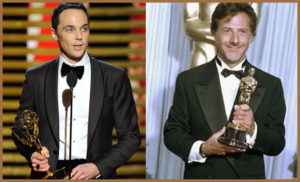
The biggest issue that many have with Rain Man is how it is constantly to blame for people thinking that all autists are:
- Bad with money (I am actually very careful with spending/saving)
- Good at Poker (I’m more of a Blackjack man)
- Incredible at remembering things (I once covered the same topic on the blog twice!)
- A danger on the roads (I actually am an ‘excellent driver’)
However, all of these negative stigmas are not through any fault of the movie itself but due to people’s lack of ability to move on in the 30 years since the movie was first released – a problem which has become more prominent thanks to the inability of directors/writers and producers to innovate/diversify an autistic representation beyond that of the anti-social genius in dire need of catching some sun.
While this is a trope which did not originate with The Big Bang Theory, it was certainly popularised by it – along with the frustrating idea that you don’t have to openly diagnose an autistic character in a show (although that’s a discussion for a different day).
The real tragedy of this is that it now means that many in the community (myself included) now constantly pick on Rain Man for the simple issue of it being outdated. Subsequently forgetting the wealth of responses the film had upon its initial release e.g.
- An increase in autism screening for children
- Innumerable donations to autism charities & research flooding in
- Autism employment rates shooting up
Although The Big Bang Theory never set out to be a landmark depiction of autism, shows like itself, The Good Doctor and Atypical needs to rise to the challenge they now find themselves in as, by creating carbon copies of the same old savant over and over again, they are eliminating their opportunity to create something unique and new, which ultimately lets down viewers as well as an entire community who rely on these portrayals for raising positive autism awareness around the world (which is a shame because I REALLY enjoy watching The Big Bang Theory).
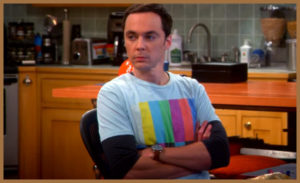
(I can’t image that is a result Sheldon would be impressed with)
Carry on the Conversation:
Who you think depicts autism better Raymond or Sheldon? Let me know in the comments below. And, for more Raymond match ups, follow this link to my discussion on Why Guardians of the Galaxy depicts Autism better than Rain Man.
As always, I can also be found on Twitter @AutismRevised and via my email: AutisticandUnapologetic@gmail.com.
If you like what you have seen on the site today, then show your support by liking the Autistic & Unapologetic Facebook page. Also, don’t forget to sign up to the Autistic & Unapologetic newsletter (found on the sidebar on laptops and underneath if you are reading this via mobile) where I share weekly updates as well as a fascinating fact I have found throughout the week.
Thank you for reading and I will see you next Saturday for more thoughts from across the spectrum.
